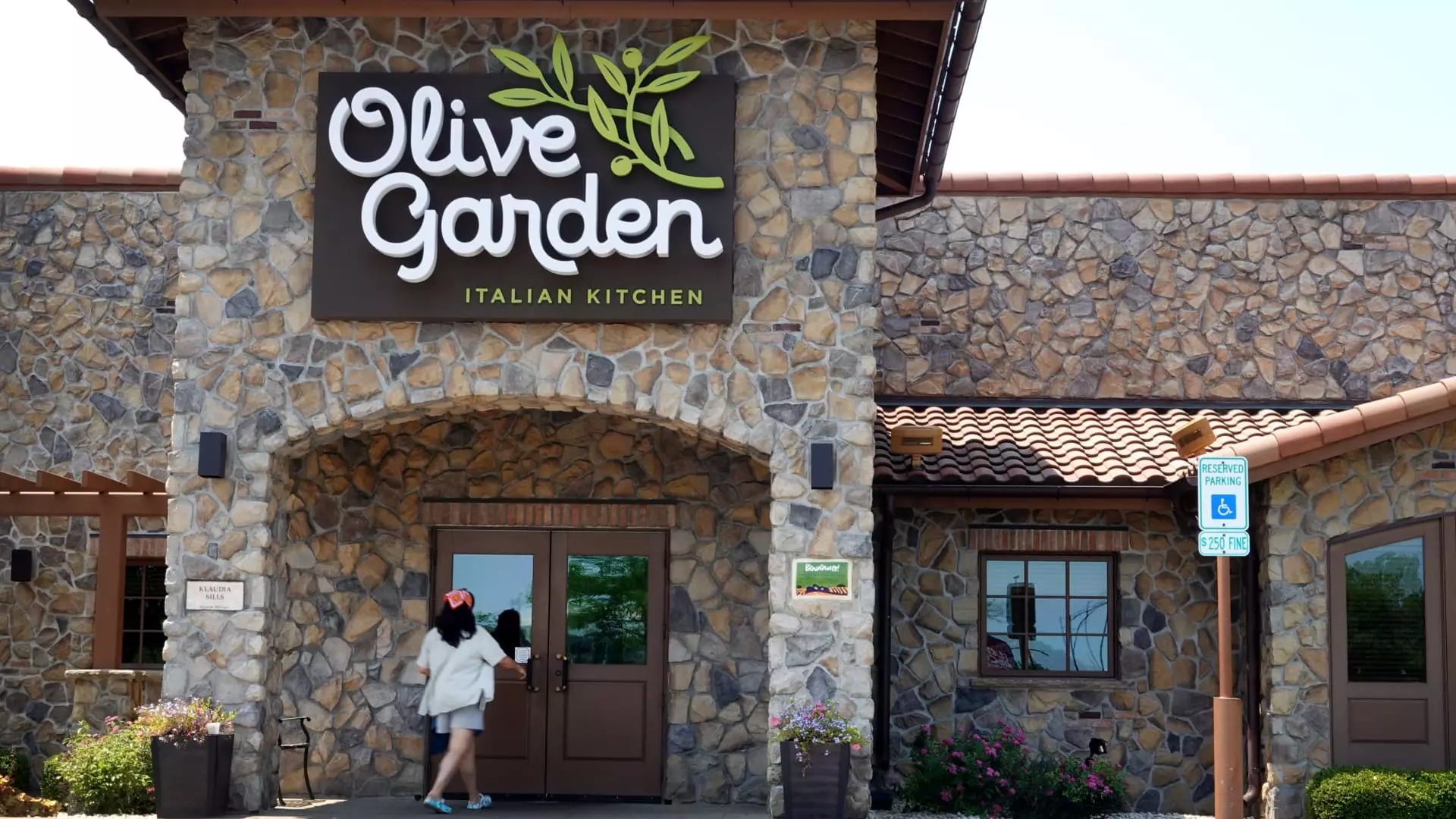Darden Restaurants, the notable parent company of popular dining brands such as Olive Garden and LongHorn Steakhouse, has released its fiscal second-quarter earnings, revealing a mix of strong results and unique challenges. As the company navigates through fluctuating consumer behaviors and external market influences, a closer look at its financial performance sheds light on the nuances of its ongoing success and areas requiring attention.
Darden’s earnings report surpassed the expectations of analysts, with an adjusted earnings-per-share (EPS) of $2.03 compared to the anticipated $2.02. Revenue generated during the quarter reached $2.89 billion, slightly lower than the projected $2.90 billion. However, the overall impression from the figures demonstrates a positive trajectory, as net income climbed to $215.1 million, or $1.82 per share, marking a respectable increase from $212.1 million, or $1.76 per share, in the same period the previous year. The 6% rise in net sales reflects a robust consumer appetite for dining options amid a competitive market landscape.
Interestingly, an essential takeaway from the report is the 2.4% same-store sales growth, which outperformed the analysts’ forecast of 1.5%. This increase signals a thawing of consumer hesitance observed in previous quarters, particularly among consumers with incomes between $50,000 and $100,000. Rick Cardenas, the CEO of Darden, commented on the apparent recovery in consumer spending, highlighting a resurgence in visitation frequency at their restaurants.
However, the company isn’t without its obstacles. Darden faced “meaningful impacts” from the recent hurricanes, particularly with one Cheddar’s Scratch Kitchen location in North Carolina being unable to reopen. Fortunately, this is a rare occurrence in Darden’s wider portfolio, and plans are underway for its reopening next year. This adaptability showcases how the company can adeptly address challenges while maintaining its performance metrics.
Additionally, the earnings report reveals that LongHorn Steakhouse has emerged as a standout performer, registering an impressive same-store sales growth of 7.5%, significantly exceeding Wall Street expectations of 4.1%. This positive performance may be attributed to the chain’s commitment to high-quality food at competitive prices, attracting both new and returning patrons.
On the other hand, Olive Garden, which is crucial to the company’s revenue at over 40%, showed a moderate same-store sales increase of 2%, overcoming a forecasted growth of 1.4%. Implementing promotional strategies, including the return of the popular “Never Ending Pasta Bowl,” helped evoke consumer interest, allowing for higher customer spend by offering additional protein options.
In stark contrast, Darden’s fine dining segment experienced a decline, with same-store sales dropping 5.8%, which was worse than the expected 2.8% decrease. This downturn can largely be attributed to the price sensitivity of consumers amid current economic pressures, pushing them to seek more affordable dining experiences. The transition of Thanksgiving from the second to third fiscal quarter further complicated the fine-dining segment’s sales performance this year.
Nonetheless, when considering the influence of external factors like hurricanes and the seasonal calendar shift, the fine dining division’s performance shows signs of stabilization with a less severe decline compared to previous quarters.
Looking ahead, Darden is actively enhancing its market presence with the addition of 39 net new locations and the integration of 103 Chuy’s restaurants, following a significant $605 million acquisition. Although the Chuy’s numbers won’t impact same-store sales metrics until a later fiscal quarter, this acquisition indicates the company’s commitment to broadening its portfolio and driving future growth.
Darden has updated its fiscal outlook, projecting total sales to reach $12.1 billion, a positive revision from previous forecasts. The company’s solid forecast of net earnings per share reflects a confidence in their strategies to foster growth and reinforce financial stability.
While Darden Restaurants faces some headwinds, particularly in the fine-dining sector, its ability to engage consumers, drive sales growth, and adapt to challenges stands testament to its resilient and proactive leadership. The company’s strategic steps moving forward signal a promising path as it looks to leverage its strengths and navigate the evolving dining landscape.

Leave a Reply